What’s for dinner at the KFBG Wild Animal Rescue Centre?
We make all efforts to provide food items that are similar to the natural diet in the wild. This great barbet (Megalaima virens) is picking fresh berries that have been pinned to the branches in its enclosure.
Many different kinds of birds are received by the Rescue Centre throughout the year and each species has its own nutritional requirements. Without the appropriate diet, animals would suffer from malnutrition. During the rehabilitation process, the animal care team provide all birds with a diet that is similar to that consumed in the wild. There is a wide variety of food items that birds can choose and consume in the wild, so that they are able to obtain the nutrients that they need. However, in captivity their nutritional intakes solely depend on what diet is provided to them by humans. Therefore, it is very important to ensure that all kinds of essential nutrients in the right amounts are provided to the birds in their diets during rehabilitation.
Many of the birds we receive are omnivores or frugivores, such as bulbuls and magpie robins, that consume insects and wild fruits from plants in the wild. Here in the Rescue Centre, a chopped fruit mix is usually served with other food items for these small omnivorous birds. Doves and sparrows are examples of the common granivorous (seed eating) species that we often receive. Seeds are included in the diets of these birds.
Insects are also an important protein source for many wild bird species. We provide live insects that are commercially available, to the birds daily. Natural hunting behaviour can also be undertaken as there are live insects within the large enclosures so this provides a good exercise for birds in captivity and opportunities for them to practice their foraging skills.
We also provide a wide variety of meats to our birds. Besides raptors, many omnivorous birds, such as magpies, crows and koels, consume small rodents as well. Different types of fish are also available from our kitchen, as many of the waterbirds we receive are piscivorous (fish-eating).
We provide a variety of foods and suitable feeding environments to meet the natural needs of rescued wild birds. This cannot be easily accomplished in most people's homes and should not be attempted at home as many local animals are protected by law and wildlife rehabilitation requires a licensing by the authorities.
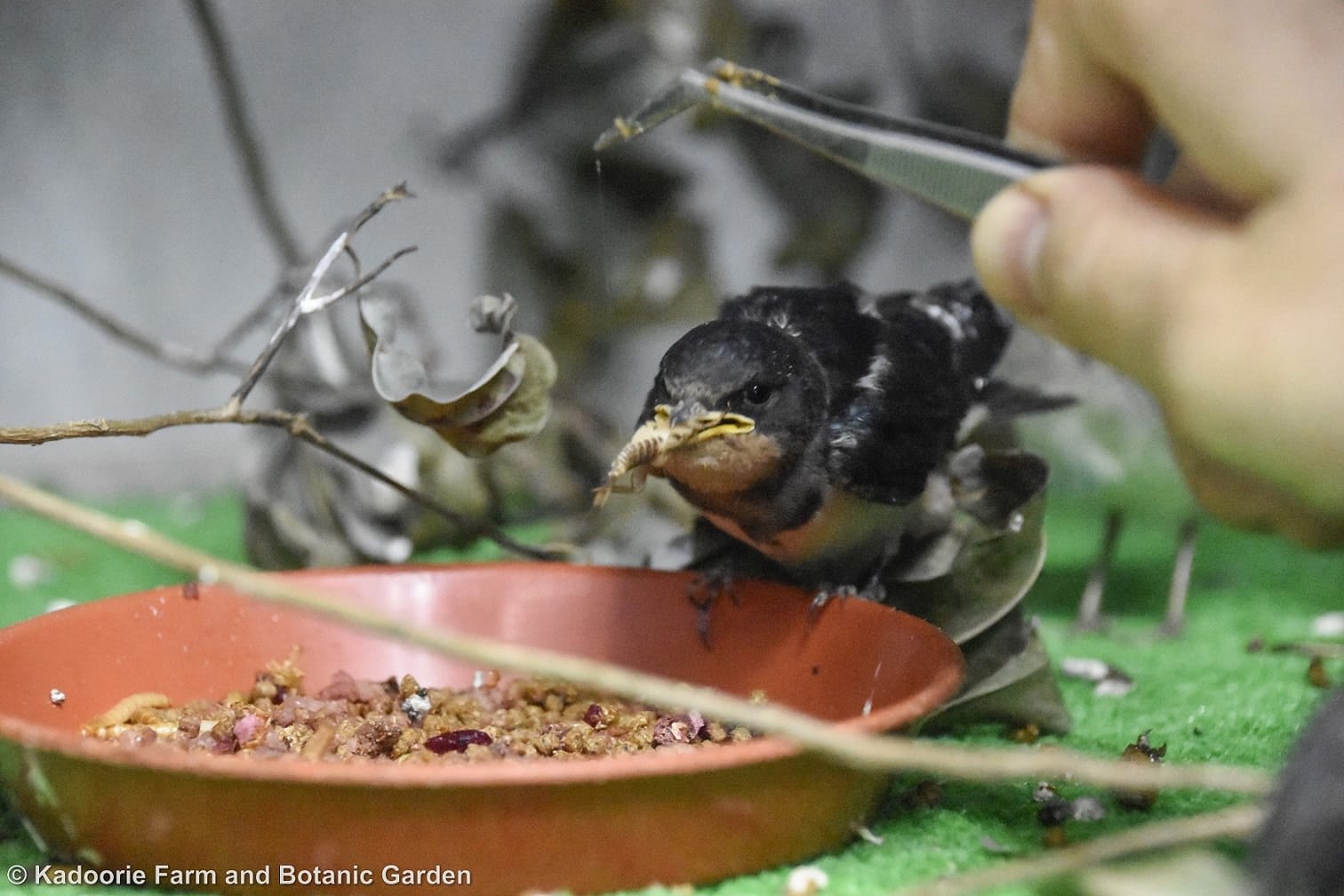
It is important to provide all kinds of essential nutrients in the right amount to birds in captivity in order for them to grow healthily, especially for the hatchling and fledging birds. (Photo Credit: Helen Kwok Visual)
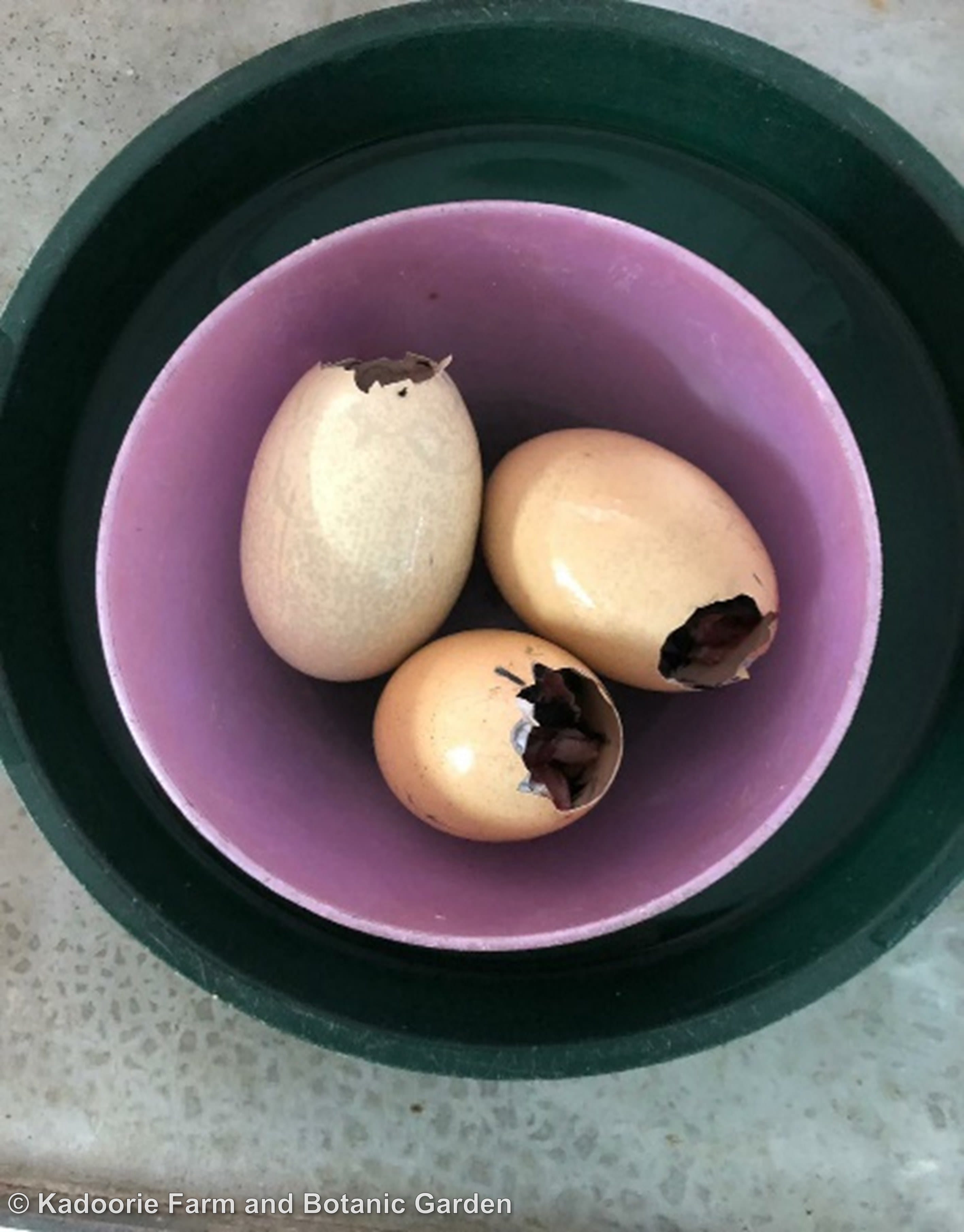
Food items can also be used for enrichment for animals when they are served in an imaginative way. These empty egg shells are stuffed with meat and are used as enrichment for raptors. (Photo credit: Kadoorie Farm and Botanic Garden)
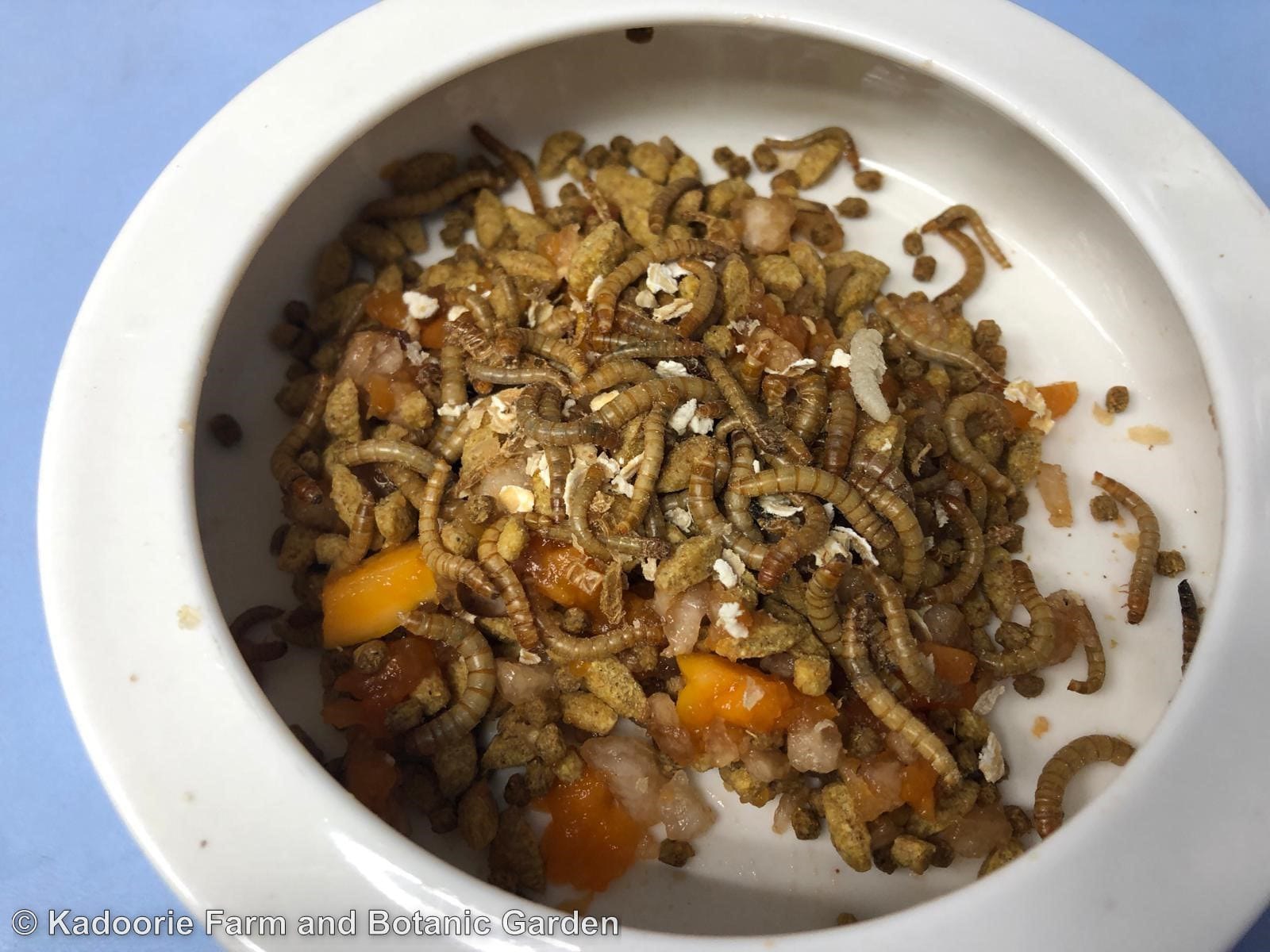
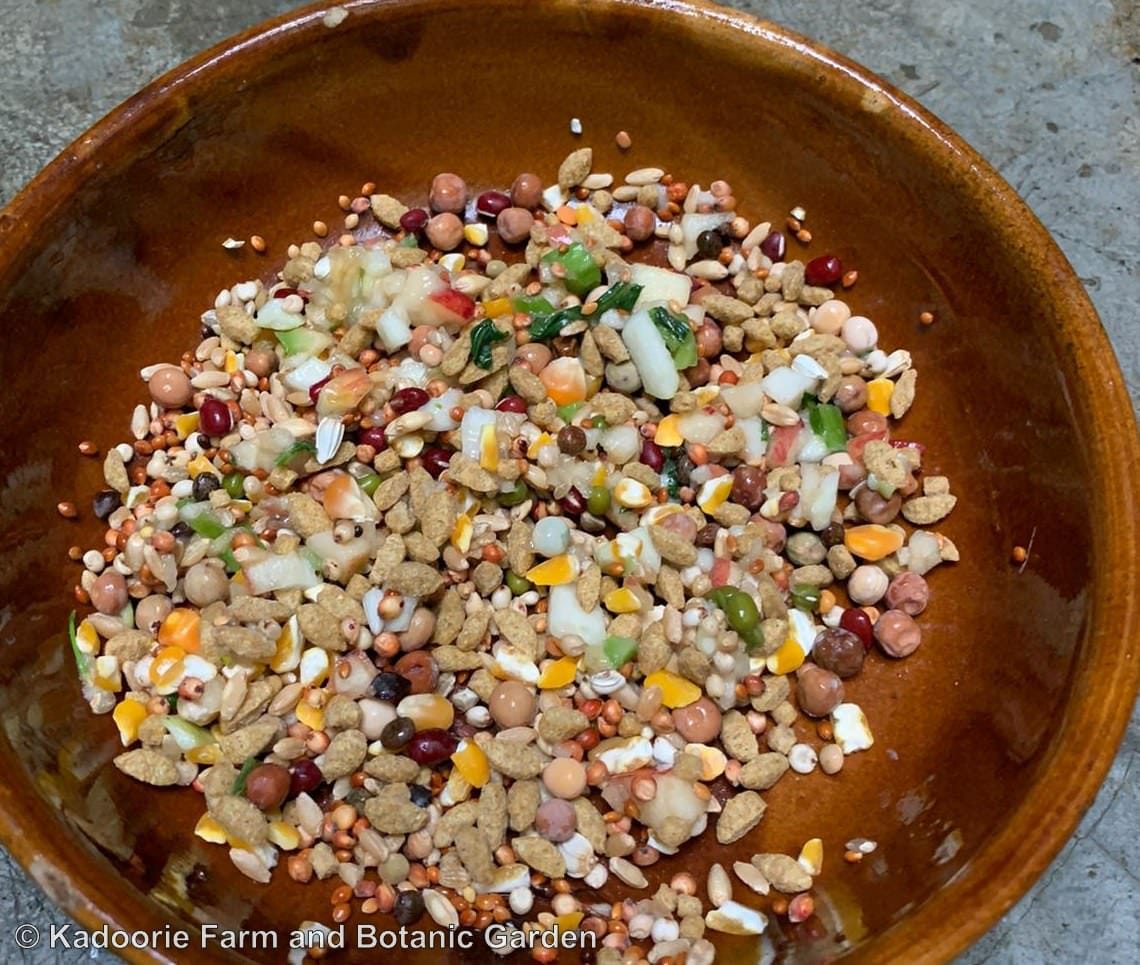
Examples of dish food given to insectivorous (above) and granivorous (below) birds in WARC. (Photo credit: Kadoorie Farm and Botanic Garden)
Providing the right kind and quantity of nutrients to birds in captivity is very important as malnutrition can be fatal. Overgrown beaks and claws, fragile claws and bone, poor feather quality, and perosis (deficiency of vitamins causing bone deformation) are some common signs of nutritional deficiency. Malnutrition can also badly affect the chance of survival after being released into the wild. In the long term, malnutrition can result in slow growth and disorder in body systems and eventually lead to death.
Some bird species will not self-feed in captivity due to their specialized foraging habits. For example, house swifts capture flying insects on the wing and will not easily consume food served in a dish. Therefore, force feeding through a syringe is essential for the survival of these birds. Force feeding is stressful to the animals and can be dangerous. If the procedure is not carried out in a careful manner, choking and fracturing of beaks can easily occur. Therefore, these processes should be done only by trained and experienced professionals.
If you encounter an injured wild bird that needs to be rescued, please do not hesitate to contact SPCA 27111000, AFCD 1823 or KFBG. DO NOT attempt to feed the bird before the rescue team has arrived. Even though the bird may be willing to take food from you, it may not be able to digest it due to dehydration or because the food provided is not appropriate. Food with artificial additives, seasoning and sugars such as bread crumbs or cakes, should never be provided to any birds. Rescue and rehabilitation of birds is complicated and requires professional knowledge. Please send injured wildlife only to authorized rescue organizations.
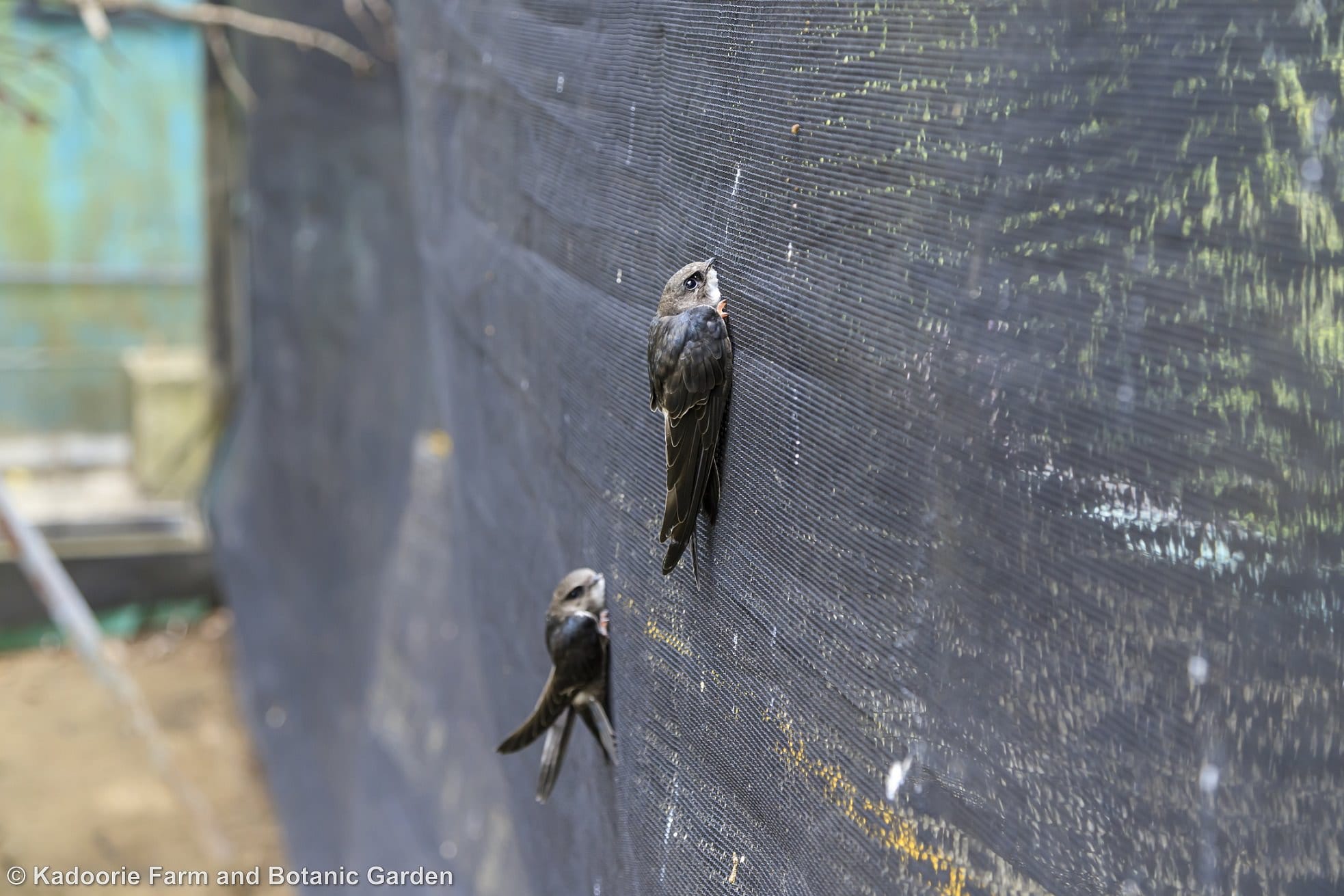
Some species of birds such as house swifts (Apus nipalensis) have special foraging methods and do not eat from a dish. These species of birds need to be hand fed carefully by trained animal keepers during rehabilitation and on release they are place vertically as in the photograph so that they are able to take flight easier (Photo credit: Walter Ma)


